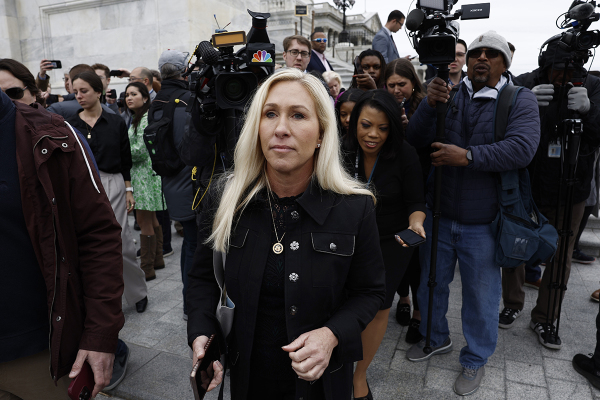Jihadi Rhetoric: Tiresome but Deadly
I just spent the better part of the day reading and listening to sermons by the leaders and jihadis of the new "caliphate" in Mesopotamia, the Islamic State (formerly "Islamic State of Iraq and Syria").
I did so in the vain hopes of learning something "new."
But it was absolute déjà vu-taking me back to a decade ago, when I was reading and translating the Arabic writings and speeches of al-Qaeda leaders Osama bin Laden and Ayman Zawahiri, as collated in The Al Qaeda Reader.
Now as then, it's the same Koran verses; the same hadiths of Islamic prophet Muhammad waging and praising jihad; the same threats of hellfire for the munafiqun (hypocrites or lukewarm Muslims); the same carnal rewards in the now or hereafter for those who join the "caravan" of jihad.
Consider for instance the following opening words of a recently released short video from the Islamic State titled, "There is No Life Without Jihad":
If you wish to know the way to glory and power, to goodness, security and joy, you must learn that there are no rights without jihad, no justice without jihad, no dignity without jihad, no security without jihad, no future without jihad, no life without jihad, no life without jihad.
After this rather hackneyed opening, one Abu Muthana, a jihadi from Britain, appears quoting some more of the usual Koran verses, hadiths, and ulema, in this case, Imam Qurtubi, who wrote that "jihad gives life." Finally he summarizes the goal of the jihad-in case anyone is still not sure-namely, to fight until "the law [Sharia] of Allah is implemented and the caliphate restored."
To reiterate, there is little new or original in the videos and communiques from the Islamic State. Just static Islamism.
If one turns to the speeches of other Islamic and jihadi groups around the world-from the African groups such as Boko Haram (Nigeria) and al-Shabaab (Somalia), to Asian groups such as Abu Sayyaf (Philippines) and the Islamic Movement (Uzbekistan)-it's the same thing, same themes, same scriptures, same quotations, same exhortations, same condemnations. Only their temporal circumstances and vicissitudes of victory or defeat differ.
While the Western mentality, so used to seeing and hearing about the "latest" or "newest" fad, may deem the Islamist approach as static or insipid, it is, quite the contrary, immensely effective for its purposes, and thus dangerous.
Consider: It's the same exact message-of supremacism, hate, and violence, capped off with divine sanctioning-repeated over and over again, from a myriad of sources and organizations, all of which claim authority.
One can think of few better ways to brainwash and indoctrinate young and impressionable minds-to the point that they eagerly embrace death, including through suicide (AKA "martyrdom operations").
Nor is this message of jihad, conquest, and death-to-the-infidel, limited to the verbiage that transpires among terrorist organizations; instead, this sort of rhetoric has spread far and wide, thanks to modern technology-including the Internet and social media-and the rich Gulf States, chief among them Saudi Arabia, which have seen to it that the jihadi books and passages being quoted are available to all and sundry.
Indeed, and has been demonstrated repeatedly, such jihadi rhetoric is regularly used in mosques all throughout Europe and America-explaining why an inordinate amount of jihadis in Syria and Iraq, such as Abu Muthana, the aforementioned "Brit," are in fact from the West.
If the West, in the name of "religious freedom," is still too fretful to monitor and ban such sermons, in Egypt-a Muslim nation in the heart of the Islamic world-the post Muslim Brotherhood government has come to understand the necessity of outlawing "certain" kinds of sermons and preachers from the mosques, specifically, those about jihad against infidels and apostates.
Of course, such a move sounds extremely "anti-freedom" to the liberal mentality; The New York Times bemoaned it, without considering that such a clampdown on sermon topics actually combats terrorism and saves human lives. For example, the overwhelming majority of attacks on Egypt's Christian Copts occur on Friday-the one day of the week Muslims congregate in mosques to hear sermons.
Ultimately, however, such a move from Egypt-an Islamic nation-is an indicator of just how problematic unregulated (i.e., jihadi) sermons can be: if "moderate" Muslims are fearful from the repercussions of "radicalized" sermons, shouldn't we "infidels" be even more wary of them?
In the end, there's good news and bad news in all this: the good news is that one need not be familiar with the constant communiques, videos, and messages emanating from this or that jihadi group-for they are all recycled, all the same. To hear one, is to hear them all.
The bad news is that, due to the severe lack of common sense and censorship in the form of political correctness that plagues the West, the rhetoric of jihad and its unvarying message of hate remains wholly unintelligible.
If the jihadis, like parrots, are forever repeating each other-and compelling other parrots to join them-Western leaders and politicians, like ostriches, are forever sticking their heads in the sand, lest they acknowledge the cacophony of hate surrounding them, and us.






















